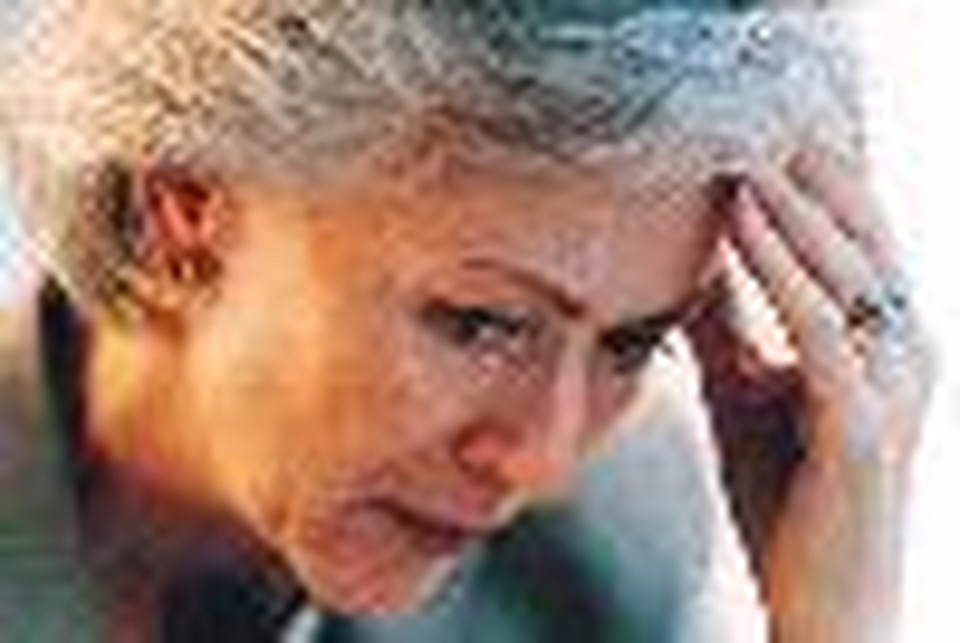The Antidote to Stress in an Age of Anxiety

As a small child, there were three things I thought I would never master: Chewing with my mouth shut, sitting with my knees together, and being certain of whether the arrow in math class pointing to the right meant "greater than" or "less than."
Chewing with my mouth shut became a lot easier once all my permanent teeth arrived. Today, I am a reasonably polite dinner partner, providing there are no cherry tomatoes in the salad. And sitting lady-like in a dress became easier once my pudgy little legs began to grow and my feet could finally touch the floor.
I have also come to effortlessly recognize that the caret pointed to the right, ›, means "greater than." It's such a handy symbol that I've adopted it into my note-taking. The list of things I have to do by Friday is › the time I have to do them in. The number of calories I have taken in today is › the number of calories I have burned.
Despite such flawless mastery, the › symbol continues to deal me fits. Let me explain.
For generations, Greek men traditionally carried worry beads in their pockets. These were small, colorful beads on a string, or precious gemstones strung on a chain. When confronted with a problem, a disconcerting surprise, or particularly unwelcome news, men would stroke their beards with one hand and finger worry beads with the other. Over time, the worry beads would become worn and smooth, or in the case of easily agitated men with an extremely low tolerance for stress, completely worn out.
The concept of worry beads is appealing. But being that I am not Greek, male, or heavily bearded presents certain limitations. Actually, the main problem is that I am female, which means I can't depend on my pants having pockets in which to carry worry beads.
The contemporary American counterpart to worry beads would be stress balls, those squishy plastic balls that look like miniature porcupines without heads. Another fine coping technique to be sure, but a little too obvious. Bouncing a stress ball from palm to palm in public doesn't exactly give off a "You-can-count-on-me-I'm-a-dependable-sort" kind of message. It gives off more of a "I-just-escaped-two-days-ago-and-they-are-looking-for-me-as-we-speak" kind of air.
As a compromise, I've tried to imagine I have one of those greater than ( ›) math signs in my pocket. An invisible reminder that, in spite of all the worries and dilemmas of everyday life, God is greater than . . .
But, try as I might, I easily forget. I forget that God is greater than the insurance premium for teen-age drivers. I forget that God is greater than that chirping sound the refrigerator is making. I fail to remember that He is greater than this morning's heated argument with the better half. I outright panic when I loose sight that God is greater than diabetes, cancer, or Alzheimer's.
As Americans, our lives have never been easier, yet stress has never been more epidemic. Speculation abounds that life in the fast lane is paving the way for the Age of Melancholy. The World Health Organization calculates that depression is on the way to becoming the world's second-most disabling disease in the next decade. Today, we have a virtual smorgasbord of depression: adult depression, adolescent depression, holiday depression, seasonal light-deprivation depression, post-partum depression and senior citizen depression. We're so depressed that even our dogs are depressed.
Abe Lincoln used the phrase "black dog" to describe his on-going struggle with stress and depression. Shakespeare wrote that hope is sometimes the only medicine that the miserable have. In recent years, many members of the medical community have given Shakespeare a mighty "Amen."
Several years ago, 1,000 doctors, nurses, and other health professionals worldwide registered for the first of its kind event at the Harvard Medical School -- a conference designed to teach the value of prayer and other spiritual pursuits as healing tools. One of the event organizers and professors involved with the event said that some religious influences are "the mental equivalent of nuclear energy."
Hundreds of studies have found that prayer and faith cause specific physiological changes that resemble relaxation. They found that people who attend religious services are more likely to have sound moral judgment, are more likely to have children who exercise sexual restraint and are more likely to possess greater family and marital happiness.
The greatest thing about all these findings -- in a world where treating stress has become a national past time, a daytime talk show obsession, and a billion-dollar industry -- is that these treatments are absolutely free. No appointment needed, no special training required, no therapy advised. Sometimes the cure for stress can be as simple as finding a quiet corner, opening a Bible to the Psalms, the Gospels, or bringing to mind that little mathematical symbol, › and remembering that God is greater than.

Originally published June 20, 2005.







